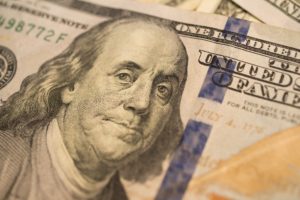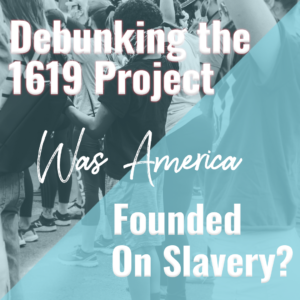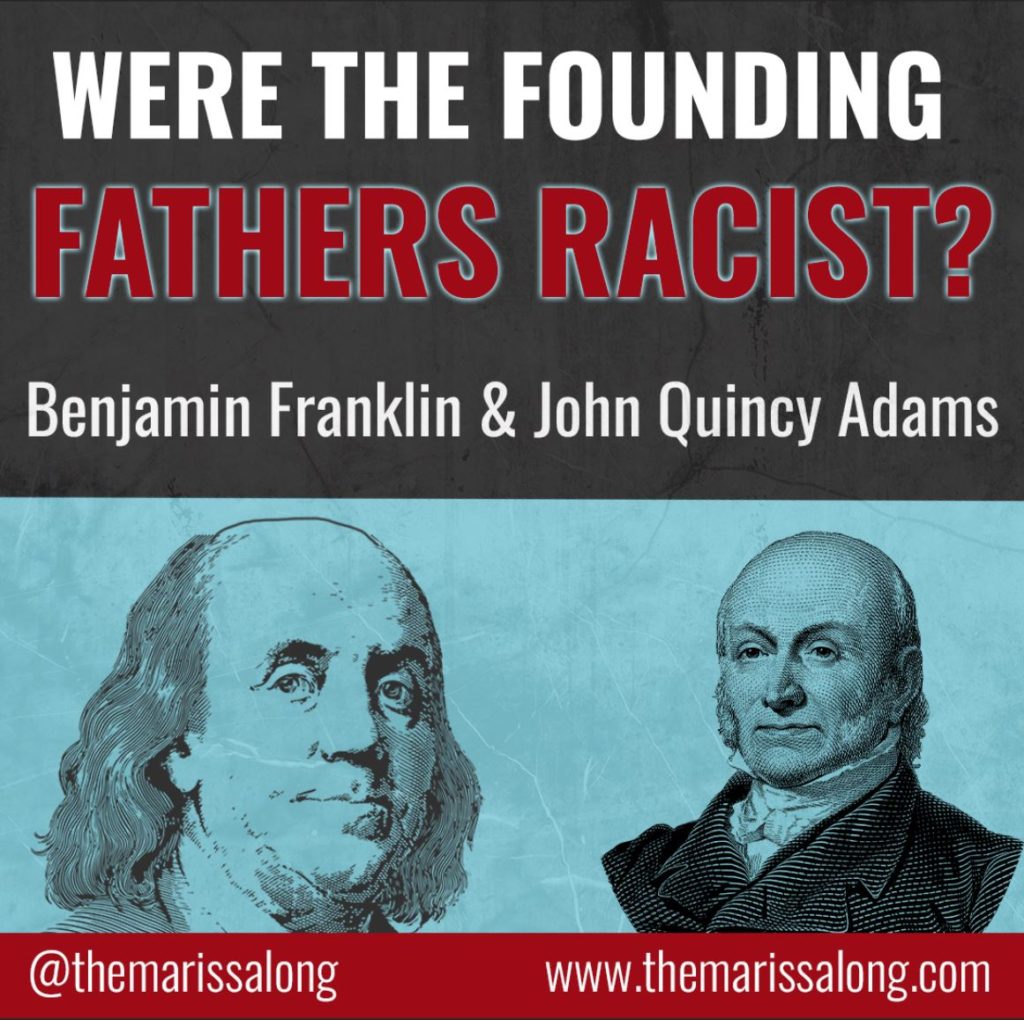A nation’s history is its most cherished treasure, and when history is twisted, the nation loses its identity. The Founding Fathers are often portrayed as bigoted, racist slave owners who did nothing but abuse their slaves in private and tout human rights and equality in public.
It is my goal to uncover the history of some of these mens’ legacies. Were they truly hypocritical, white oppressors whose images stare at us coldly from the faces of our dollar bills, or were they actually the great Founders of America, and did they actually live out the foundations of the Land of the Free?
Benjamin Franklin

Benjamin Franklin was a man of his time, including fashion, inventions, and, tragically, owning slaves. He owned slaves for nearly 50 years (around 1735 to 1781). His newspaper, the Pennsylvania Gazette, advertised slaves for salve, but in the 1760’s, Franklin’s tone began to change.
In 1763, Franklin wrote that slaves’ ignorance was not natural or something built into black people. Instead, he made the case that because slaves were not legally allowed to read or write, they were forced into ignorance. He said that there was no difference between a black child and a white child in their learning capabilities.
In 1787, Franklin became the president of the Abolition Society, which laid the foundation for future abolition societies.
In a speech in 1789, Franklin said, “Slavery is such an atrocious debasement of human nature, that its very extirpation, if not performed with solicitous care, may sometimes open a source of serious evils.”
In 1790, Franklin petitioned Congress to legislate freedom for slaves, but his request was voted down by congressmen in favor of slavery.
John Quincy Adams: The Hell-Hound of Abolition

John Quincy Adams was known in Congress as the Hell-Hound of Slavery for his strong anti-slavery views. He was the son of former President John Adams, a signer of both the Declaration of Independence and the Bill of Rights, who was recorded as saying, “[N]ever in my life did I own a slave.”
John Adams’ views rubbed off on his son, and John Quincy Adams spent his life fighting for the abolition of slavery in America.
In 1837, Adams gave an oration at the Town of Newburyport. He made a firm statement, making his views very clear.
“The inconsistency of the institution of domestic slavery with the principles of the Declaration of Independence was seen and lamented by all the southern patriots of the Revolution; by no one with deeper and more unalterable conviction than by the author of the Declaration himself [Jefferson]. […] Never from their lips was heard one syllable of attempt to justify the institution of slavery. They universally considered it as a reproach fastened upon them by the unnatural step-mother country [Great Britain] and they saw that […] slavery, in common with every other mode of oppression was destined sooner or later to be banished from the earth” (Patriot Academy).

RELATED: Debunking the 1619 Project: Was America Founded on Slavery?
John Quincy Adams & The Gag Rule
Adams was one of the lone members in Congress to protest the Gag Rule, passed in May 1836. This Gag Rule “automatically ‘tabled,’ or postponed action on all petitions relating to slavery without hearing them” (Archives.Gov).
Why did Congress feel the need for a Gag Rule?
Because in 1834, the American Anti-Slavery Society sparked a massive petition movement to end slavery. Their efforts were so successful that in 1837-1838, Congress’ mailbox overflowed with more than 130,000 petitions from abolitionists, and the petitions just kept coming! (Archives.Gov).
Southern, pro-slavery Congress members became alarmed that the petitions would be successful, and slavery would be abolished, so they passed the Gag Rule. This infuriated John Quincy Adams, and he led the charge against the rule. He was so persistent on the floor of Congress that in 1837, Southern Democrats tried to censure him.
Nonetheless, Adams was victorious in 1844 when Congress passed his motion to lift the Gag Rule and allow petitions against slavery to be heard once again in Congress.
By fighting to lift the Gag Rule, John Quincy Adams was a voice for the slaves who had no voice at that time.
John Quincy Adams’ Continued Fight Against Slavery
Adams efforts against slavery were broader than the Gag Rule. “In 1839, he introduced a constitutional amendment to ban slavery in all new states entering the Union” (AmericanMinute).
United States vs. The Amistad
In 1841, John Quincy Adams stood before the U.S. Supreme Court, representing 53 Africans charged with mutiny on the Spanish ship La Amistad. The Africans had been taken by Spaniards who had plans to sell them as slaves in America. The Africans rebelled, killed some of the crew members, and gained control of the ship. They demanded that the remaining crew take them back to Africa, but the crew sailed them straight to a jail in New England.
Lawyer Francis Scott Key joined Adams in the battle for these mens’ innocence, and they won the case.
John Quincy Adams gave a memorable statement.
“The moment you come to the Declaration of Independence, that every man has a right to life and liberty, an inalienable right, this case [United States vs. The Amistad] is decided. I ask nothing more in behalf of these unfortunate men than this Declaration.”
Conclusion
Benjamin Franklin and John Quincy Adams left a giant legacy that overshadows American history. It only takes a quick scan of history to discover they took giant steps to end slavery. Even though slavery did not end during their lifetime, they rolled out the red carpet for abolition, and their protests against slavery still echo with us today.
So what do you think? Were the Founding Fathers racist? Which Founding Father would you like to hear about next? I’m just as curious as you, so let me know in the comments what you’d like to read next!

4 comments